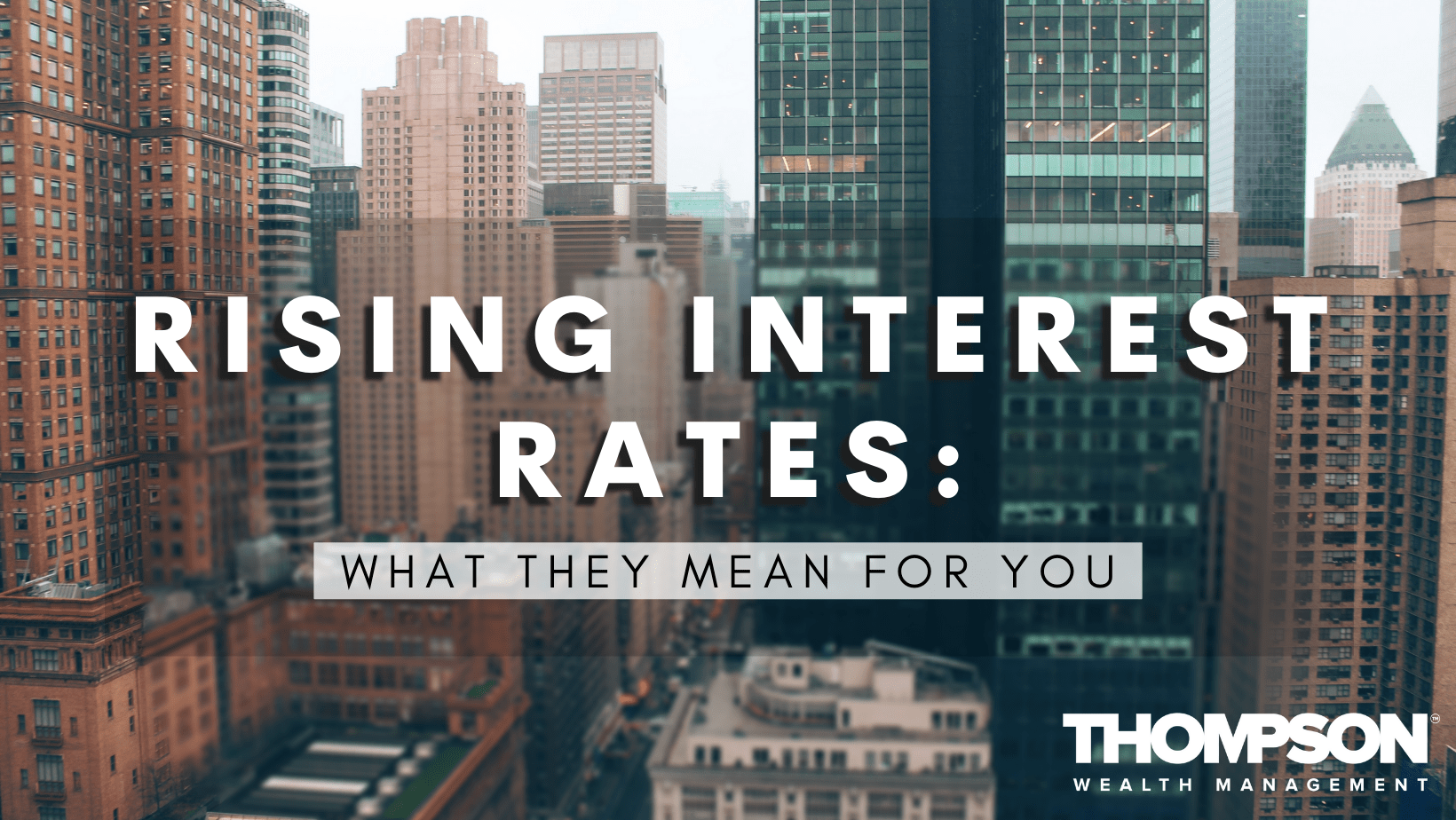
Rising Interest Rates: What They Mean for You
The economy can feel like an impossibly complex thing. After all, there are so many moving parts: real estate, inflation, the stock market, government decision making — and all of it is intertwined.
Right now, the economy is in flux. This is the natural result of the global pandemic, which set off a series of unprecedented events that changed the way money and goods flow. You’ve probably already noticed the effect of inflation driving up prices at the grocery store. Governments have taken note of inflation as well, and now the Federal Reserve is about to take steps to try to slow down inflation by raising interest rates.
What do rising interest rates mean for the rest of the economy — and possibly for your wallet? Let’s break down some of the basics.
Why Raise Interest Rates at All?
The Federal Reserve sets the Federal Funds Rate, which is the amount that banks charge each other to borrow money. This rate affects the cost of all other borrowing and lending throughout the US economy, because all interest rates are based on this one. Right now, the federal interest rate is very low, because the Fed wanted to make it cheaper and easier for businesses to borrow money and grow during the pandemic.
However, when inflation rises too fast, it often makes sense for the Federal Reserve to try to slow the economy down a bit. That slower growth will help rein in inflation so it doesn’t outstrip wages and leave the average person struggling to make ends meet. Raising interest rates makes it more expensive to borrow money, but also more lucrative to invest it. Right now, the main goal of raising the interest rate is to slow inflation.
Rising Interest Rates and the Stock Market
The news media likes to report on big spikes and drops in the stock market because they make for exciting headlines — and often, these changes accompany an announcement from the Federal Reserve about their interest rate intentions. In the short term, the stock market will often react to rising interest rates with a sell-off, and to falling interest rates with a quick spike in value.
That means that rising interest rates are bad for the stock market, right?
Not exactly. When you zoom out and look at the long term, periods of rising interest rates actually correlate to a strong stock market. Since 1989, the average rate of return on the Dow Jones Industrial Average during rising interest rate periods was +55%, compared to just +23% growth during periods of falling interest rates. Notice here that growth occurred whether interest rates rose or fell — and it actually did better when interest rates were going up.
Rising Interest Rates and Real Estate
When the Fed raises interest rates, it has a direct impact on anyone with a Home Equity Line of Credit (HELOC) or an Adjustable Rate Mortgage (ARM). That’s because the interest rates on these loans change month to month and are based on the Fed’s interest rate. If you have outstanding debt on a HELOC or ARM, your interest rate — and relatedly, your minimum payment and total amount of money and time to pay off your balance — will rise as well.
For home buyers and sellers, rising Federal interest rates don’t always mean a rise in fixed mortgage rates. If mortgage rates do rise, the general wisdom is that the housing market should slow a bit. This means that home prices should rise more slowly than in the past, though they may not actually fall. This is generally still good news for sellers, though first-time buyers could still struggle to enter a hot real estate market.
Rising Interest Rates and Consumer Spending
In general, rising interest rates tend to lead to lower consumer spending overall. This is especially true for larger purchases that buyers would use credit to cover. Loan rates and credit card interest rates will all rise along with the Fed’s benchmark, so borrowing money for big purchases will be more expensive.
This is especially important for credit card users, who could see their interest rates rise. While credit card companies can’t raise the interest on balances for things you’ve already purchased, they only need to provide 45 days notice to raise your interest rate for future purchases. This will cause many consumers to re-evaluate their spending and delay unnecessary purchases.
The Bottom Line
Change can be scary, and daily headlines about the economy are designed to get your attention — often by highlighting the negative. But the Federal Reserve’s decision to raise interest rates doesn’t mean the economy is falling apart. On the contrary, these changes can often be good for investors who have a solid plan.
Need help getting that plan in order? We’re here for you! Contact us today to review your investment strategy and make sure your retirement plan is on track — no matter what the economic forecasters are predicting.








